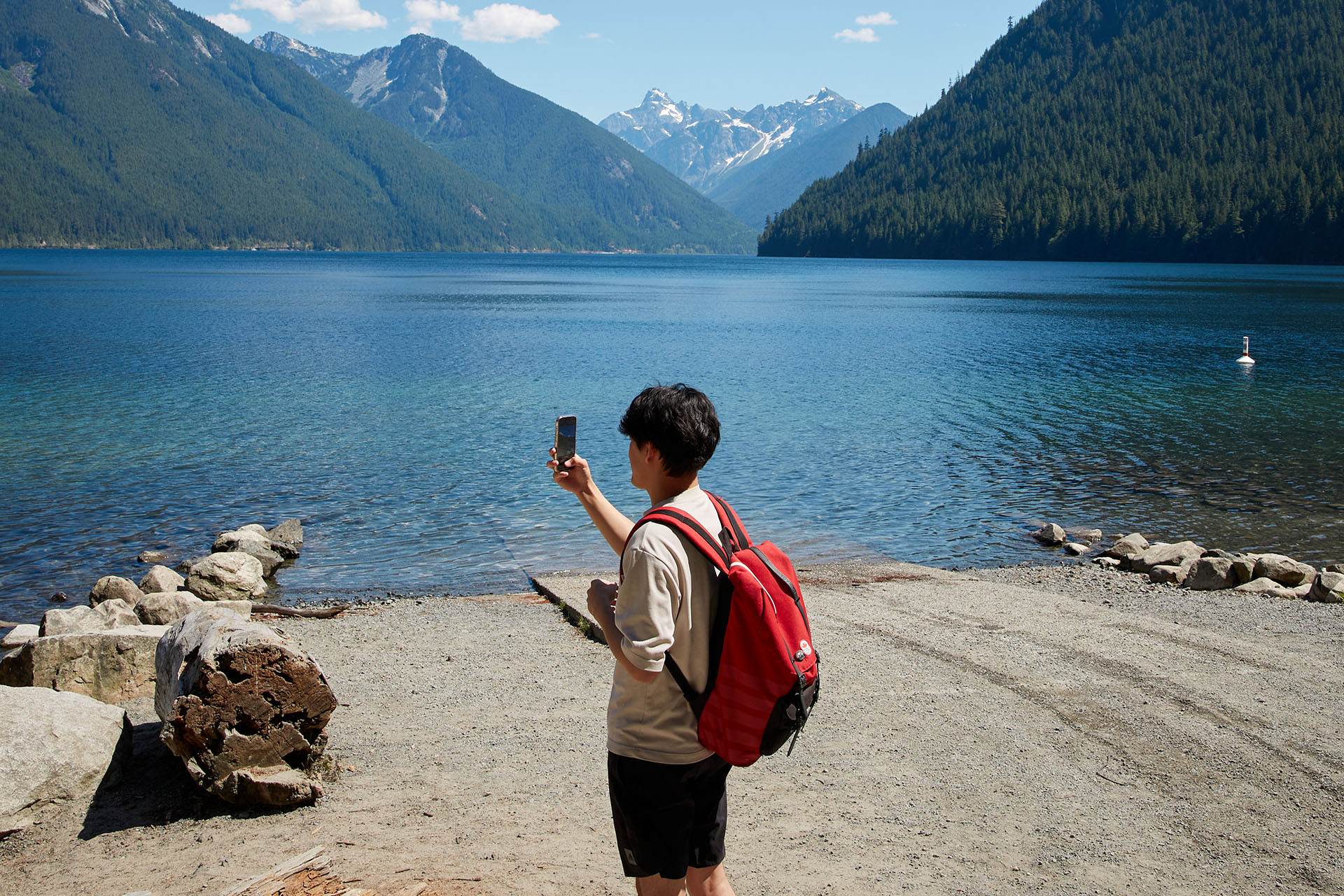Take transit to nature: how one rider discovered the health benefits
Take transit to nature: how one rider discovered the health benefits

Growing up without a car, transit rider Kai Bowes developed a deep appreciation for public transit, and particularly for the buses that carried him and his mother to the heart of nature.
As a child, he didn’t fully understand how taking the bus to the outdoors would significantly benefit his health, but today, he understands that these early experiences laid the foundation for lifelong well-being.
After all, “Nature is one of the best prescriptions I can offer my patients,” says Dr. Melissa Lem, a family physician and director of PaRx by BC Parks Foundation. “It lowers blood pressure, reduces stress, and can improve mental health.”
PaRx is Canada’s national nature prescription program. Its name is a portmanteau combining parks and “Rx,” the abbreviation for medical prescription.
On board with nature
Kai’s fascination with transit began at the age of five, as he started noticing the unique features of the different buses carting him around Metro Vancouver.
He studied TransLink’s fleet, memorizing models and their distinctive features. His early interest accelerated into a unique hobby: crafting LEGO replicas of TransLink vehicles.
That’s why his bus rides to Lynn Canyon Park were particularly exciting.
The route used New Flyer C40 buses — a bus that had stairs when boarding, which was different from the buses he rode in downtown Vancouver.
But these bus journeys to nature were more than just an opportunity to ride buses; they were social experiences.
Kai recalls peeking at fellow passengers and predicting who’d be getting off at the same stop. A tourist might ask his mother for directions to the suspension bridge. A child might strike up a conversation with Kai.
Then the group of happy park visitors would head in the same direction together where they’d brave the wobbly bridge, walk peaceful nature trails, and soak up the sun by the tidal pool.
“My mom always said the air was better in a park, and she just wanted to breathe it in,” says Kai.
And she wasn’t wrong. Research shows that air quality in parks is significantly better than in urban areas, with lower levels of pollutants and a higher concentration of oxygen, which can have positive effects on both mental and physical health.
Kai understands this more than ever as a content creator with BC Parks Foundation’s marketing team. The foundation works to connect people to nature the nature prescription program PaRx for improved health and well-being.
Continuing the journey to wellness
Kai’s appreciation for nature has only deepened over the years. His mother, too, remains an avid nature enthusiast, often joining Kai on visits to parks like Lynn Canyon, Pacific Spirit Park, and Dr. Sun Yat-Sen Classical Chinese Garden — all of which are accessible by transit.
Even though they now have a car, Kai and his mother always opt for public transit.
“Our health and our planet are both incredibly important,” Kai says. “Let’s protect them both.”
By simply riding transit instead of driving a gas car, you can shrink your transportation emissions by 80 per cent.
Kai also believes the social experiences on the bus rides, like chatting with fellow passengers or sharing a moment of excitement. It contributes to a sense of community and belonging, which is known to boost mental well-being and reduce feelings of loneliness.
This blend of physical activity, reduced stress, and exposure to green spaces creates a formula for improved overall personal and planetary health. “It’s a win, win, win,” he says.
Take transit to nature
Ready to embark on your own wellness journey and to take nature as medicine? We’re ready to take you.
There’s a transit-friendly park near you for your health: Stanley Park, Burnaby Mountain Conservation Area, Lighthouse Park, Grouse Mountain, and so many more.
Start planning your trip at translink.ca/tripplanner. Travelling with the little ones? Kids 12 and under ride free.
Purchase a DayPass for unlimited travel on all buses, the SkyTrain and the SeaBus for one full day from the start of the first transit service until 4 a.m. the following day.
Don’t have a Compass Card? Use contactless payment to pay for your transit fare. Simply tap your Interac Debit or contactless credit card (Visa, Mastercard, or American Express) on our Compass Card readers to pay an adult fare. This includes Apple Pay, Google Pay, and Samsung Pay. Each person will need to have their own card as its your proof of payment.
Visit parkprescriptions.ca to learn more about PaRx and why, more and more, nature prescriptions are just what the doctor ordered.
BC Parks Foundation






Thank you for sharing this inspiring story about Kai Bowes and his journey of discovering the health benefits of nature through transit! It’s amazing to see how something as simple as a bus ride can have such a profound impact on lifelong well-being. I love the connection between public transit and access to nature, and how Kai’s story shows that we don’t need a car to explore the outdoors and enjoy its many health benefits.